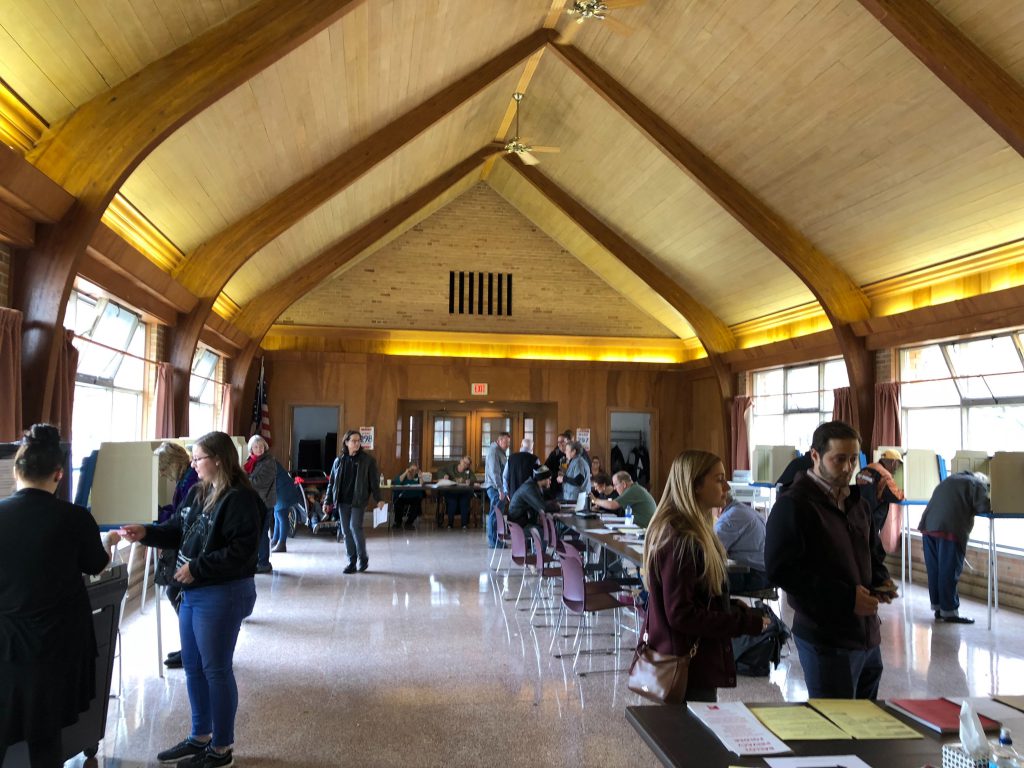Parties Argue Over April Ballot Questions
Evers calls referendum on welfare 'ridiculous.' but huge majority of legislators disagree.
An average of 1.2 million voters cast ballots in the last three spring elections for a state Supreme Court justice — less than half of the average votes cast in the last two elections for president (3 million) and governor (2.6 million).
Democrats say boosting the April 4 turnout is why Republican legislators put a constitutional change and a non-binding advisory referendum before voters that day. Republicans hope a big turnout helps a conservative win the tie-breaking seat on the state Supreme Court, Democrats charge.
The advisory referendum, the first since voters recommended restoring the death penalty in 2006, would ask voters this question: “Shall able-bodied, childless adults be required to look for work in order to receive taxpayer-funded welfare benefits?”
Although 55% of voters in November 2006 backed bringing back the death penalty, there was no move in the Capitol to do so. Democrats say this year’s advisory referendum is just as meaningless.
“It’s a ridiculous proposition, frankly,” Democratic Gov. Tony Evers told reporters last week. “I think it will work against [Republicans]. When people see that the only thing they’re doing here is to try to influence the Supreme Court race, I think that’s going to irritate some folks.”
The April 4 election will decide whether conservatives or liberals have a four-justice majority on the court, since the winner will replace retiring conservative Justice Pat Roggensack. Four candidates, including former Justice Dan Kelly, are facing off in the Feb. 21 primary; the two candidates with the most votes will be on the April 4 ballot.
Although Democrats pointed out that current rules require job searches or job training to qualify for public benefits, Assembly Speaker Robin Vos said a shortage of workers is hurting every segment of Wisconsin’s economy. “There are 101,963 unfilled jobs in Wisconsin right now, so no one should be sitting on the sidelines,” Vos declared.
Before both votes, Democrats tried to kill the GOP proposal and replace it with their own advisory referendum: Should the 1849 law prohibiting abortions, except those necessary to save the woman’s life, be repealed and replaced with the later law which for decades gave women the right to choose an abortion?
Republicans killed the Democrats’ referendum, which sought to return state law to where it was before the U.S. Supreme Court gave states authority to regulate abortions, without votes in either house.
In 2018, voters refused to change the constitution to eliminate the state treasurer’s job. In 2015, voters amended the constitution to specify that Supreme Court justices – and not the longest-serving justice – would determine who serves as chief justice.
The constitutional amendment giving judges more criteria when setting bail is needed because judges now can only consider “one factor” – whether the accused is likely to show up for future court dates, said Republican Sen Van Wanggaard, a retired Racine police officer,
“We’re giving judges the authority to look at the whole picture,” added Wanggaard. “Forty-five states allow judges to consider [the accused’s] criminal history…Thirty-two states allow the judge to consider public safety.”
The amendment would allow a judge to also consider the “totality of the circumstances, taking into account whether the accused has a previous conviction for a violent crime…the need to protect members of the community from serious harm [and] the need to prevent the intimidation of witnesses.”
The Senate vote putting the constitutional amendment before voters was 23-9; the Assembly vote, 74-23.
Legislators can schedule constitutional changes with no input from governors, if the same change passes two successive sessions of the Legislature. The bail amendment was first approved during the 2021-22 session.
Steven Walters started covering the Capitol in 1988. Contact him at stevenscotwalters@gmail.com
If you think stories like this are important, become a member of Urban Milwaukee and help support real, independent journalism. Plus you get some cool added benefits.
The State of Politics
-
RNC Brings Fame to Gen Z Party Leader
 Jul 15th, 2024 by Steven Walters
Jul 15th, 2024 by Steven Walters
-
Wisconsin’s Republican Roots Run Deep
 Jul 8th, 2024 by Steven Walters
Jul 8th, 2024 by Steven Walters
-
Feuding Supreme Court Justices Need a Break
 Jul 1st, 2024 by Steven Walters
Jul 1st, 2024 by Steven Walters





















